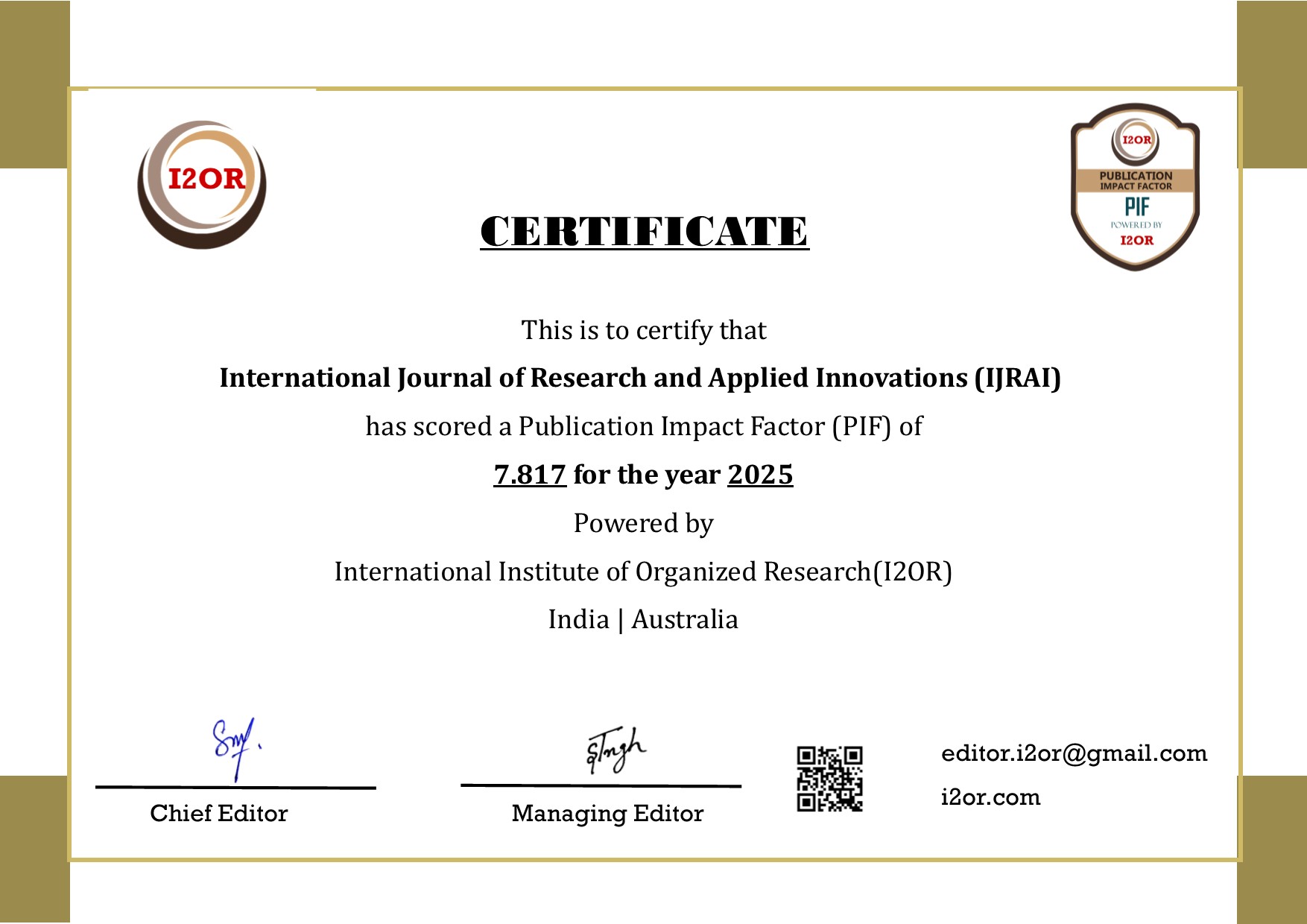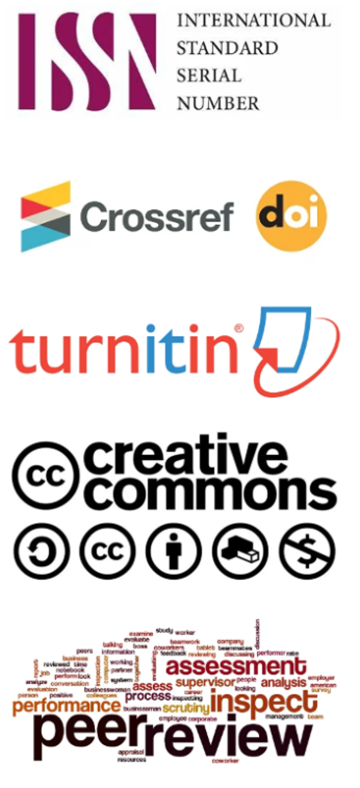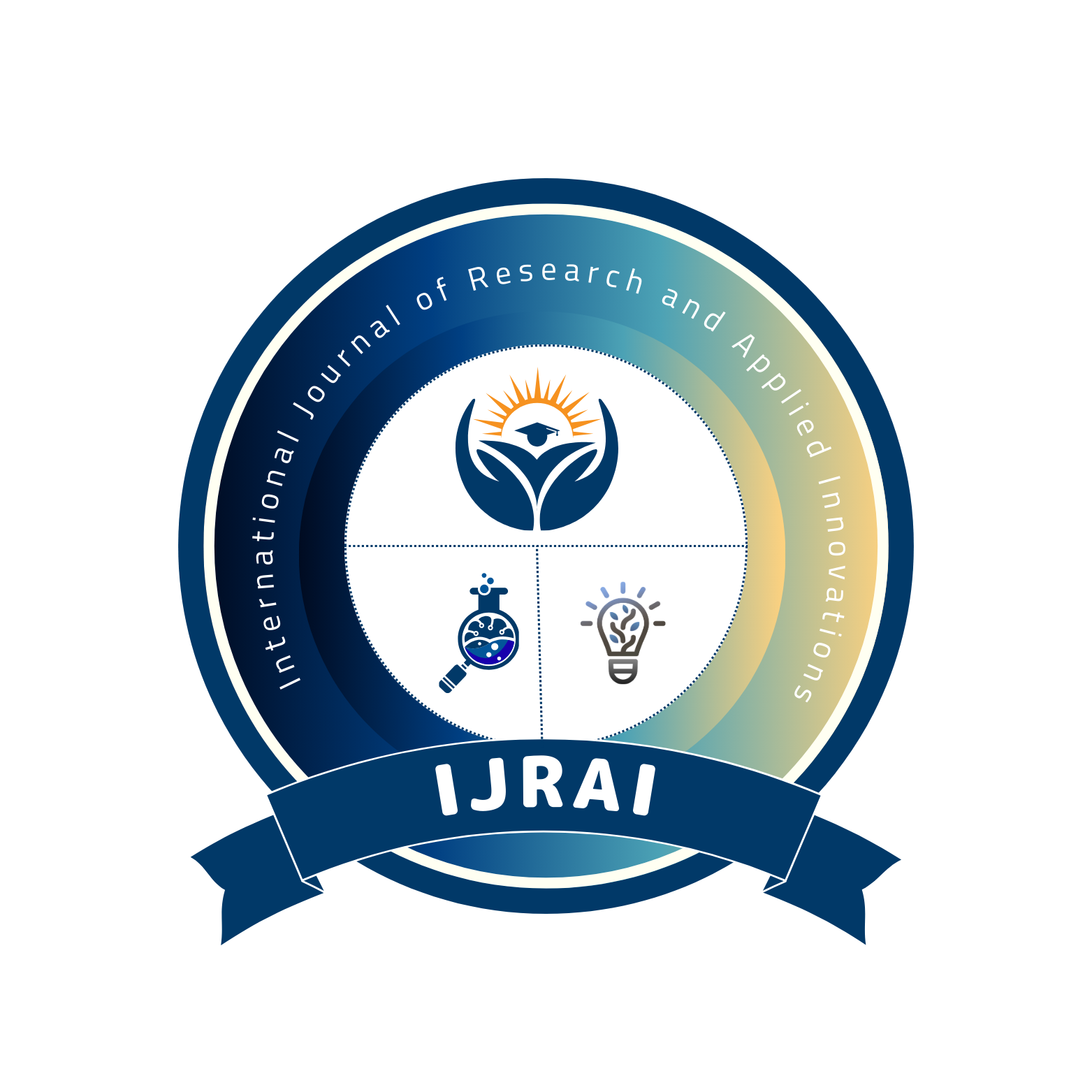Few-Shot Learning for Medical Image Classification
DOI:
https://doi.org/10.15662/IJRAI.2020.0306002Keywords:
Few-Shot Learning, Medical Image Classification, Prototypical Networks, Meta-Learning, Metric Learning Data Scarcity, Deep Learning, MRI, CT Scans, HistopathologyAbstract
Medical image classification is a critical task in computer-aided diagnosis, enabling early disease detection and improved patient outcomes. However, deep learning models traditionally require large annotated datasets, which are often scarce in the medical domain due to privacy concerns, high annotation costs, and limited availability of rare disease samples. Few-shot learning (FSL) has emerged as a promising paradigm that allows models to generalize from only a few labeled examples, making it highly suitable for medical image classification tasks. This paper explores the application of few-shot learning techniques to classify medical images across several modalities, including MRI, CT scans, and histopathology images. We review state-of-the-art FSL methods such as metric learning, meta-learning, and data augmentation strategies, highlighting their potential to overcome data scarcity in healthcare. A novel FSL framework based on prototypical networks is proposed, leveraging embedding spaces that cluster images from the same class and enabling classification with minimal training samples. Extensive experiments on publicly available medical image datasets demonstrate that our FSL approach achieves competitive accuracy compared to fully supervised models trained on large datasets. The results underline the advantages of FSL in rapid adaptation to new disease categories and rare conditions without extensive retraining. We also analyze the impact of different feature extractors and embedding dimensions on classification performance. Finally, we discuss the challenges unique to medical imaging, such as class imbalance and high intra-class variability, and propose future directions to enhance FSL frameworks for robust, scalable clinical deployment. This study aims to contribute to more accessible and efficient AI-driven diagnostic tools in healthcare settings.










